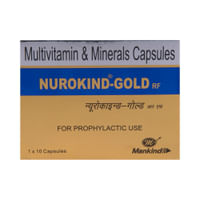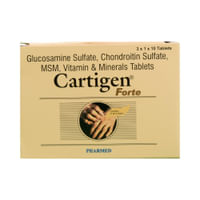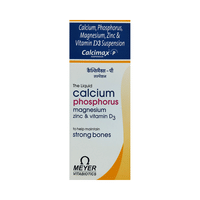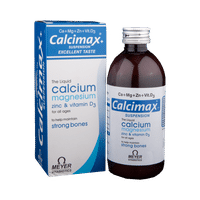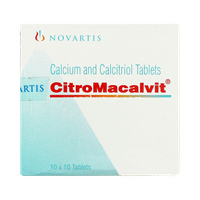Robid-D 50mg/300mg Injection
Rs.35.50for 1 vial(s) (3 ml Injection each)
food interaction for Robid-D
alcohol interaction for Robid-D
pregnancy interaction for Robid-D
lactation interaction for Robid-D
food
alcohol
pregnancy
lactation
No interaction found/established
Caution is advised when consuming alcohol with Robid-D 50mg/300mg Injection. Please consult your doctor.
CAUTION
Robid-D 50mg/300mg Injection is unsafe to use during pregnancy as there is definite evidence of risk to the developing baby. However, the doctor may rarely prescribe it in some life-threatening situations if the benefits are more than the potential risks. Please consult your doctor.
CONSULT YOUR DOCTOR
Robid-D 50mg/300mg Injection is probably safe to use during breastfeeding. Limited human data suggests that the drug does not represent any significant risk to the baby.
SAFE IF PRESCRIBED
SALT INFORMATION FOR Robid-D
Diclofenac(50mg)
Uses
Diclofenac is used for pain relief. It relieves pain in conditions like headache, mild migraine, muscle pain, dental pain, rheumatoid arthritis, ankylosing spondylitis, osteoarthritis, or painful menses.
How it works
Diclofenac is a non-steroidal anti-inflammatory drugs (NSAID). It works by blocking the release of certain chemical messengers that cause pain and inflammation (redness and swelling).
Common side effects
Nausea, Headache, Dizziness, Vomiting, Flatulence, Constipation, Diarrhea, Abdominal pain, Dyspepsia, Gastrointestinal bleeding, Gastrointestinal ulcer, Rash, Application site irritation, Injection site pain, Chest pain, Hypersensitivity, Angioneurotic edema, Platelet disorders, Convulsion, Visual disturbance, Ringing in ear, Colitis, Stevens-Johnson syndrome, Myocardial infarction
Methocarbamol(300mg)
Uses
Methocarbamol is used for muscle relaxation. It relieves painful spasms of the skeletal muscles.
How it works
Methocarbamol is a muscle relaxant. It works on the centres in the brain and spinal cord to relieve muscle stiffness or spasm without reduction in strength. This improves pain and movement of muscles.
Common side effects
Dizziness, Blurred vision, Sedation, Anaphylactic reaction, Hypotension (low blood pressure), Dyspepsia, Nausea, Vomiting, Decreased white blood cell count (lymphocytes), Memory loss, Vertigo, Inflammation of vein, Injection site pain
SUBSTITUTES FOR Robid-D
No substitutes foundExpert advice FOR Robid-D
- You have been prescribed Diclofenac to relieve pain and inflammation.
- Take it with food or milk to prevent upset stomach.
- Take it as per the dose and duration prescribed by your doctor. Long term use may lead to serious complications such as stomach bleeding and kidney problems.
- It may cause dizziness, drowsiness or visual disturbances. Use caution while driving or doing anything that requires concentration.
- Avoid consuming alcohol while taking Diclofenac as it can cause excessive drowsiness and increase your risk of stomach problems.
- Inform your doctor if you have a history of heart disease or stroke.
- Your doctor may regularly monitor your kidney function, liver function and levels of blood components, if you are taking this medicine for long-term treatment.
Frequently asked questions FOR Robid-D
Diclofenac
Q. Is Diclofenac a good painkiller?
Diclofenac is effective in relieving pain and inflammation. It is used for various sorts of pain such as sprains, strains and other injuries. It is also helpful in various types of arthritis, gout, pain and inflammation following surgery.
Q. Is Diclofenac a narcotic?
No, Diclofenac is not a narcotic. It belongs to non-steroidal anti-inflammatory drugs (NSAIDs) group of medicines.
Q. Does Diclofenac get you high?
No, Diclofenac does not get you high. It does not have an abuse potential (drug-seeking behavior) and does not cause physical or psychological dependence. However, if you do not feel well, consult your doctor.
Methocarbamol
Q. Is Methocarbamol an NSAID/Benzo/strong drug?
No, Methocarbamol does not belong to NSAID, or Benzodiazepine. It is a derivative of guaifenesin
Q. Is Methocarbamol 750 mg a narcotic/ habit forming?
No, Methocarbamol is neither a narcotic nor a habit forming drug
Q. Is Methocarbamol the same as methadone?
No, Methocarbamol is a derivative of guaifenesin while methadone is derivative of opium














